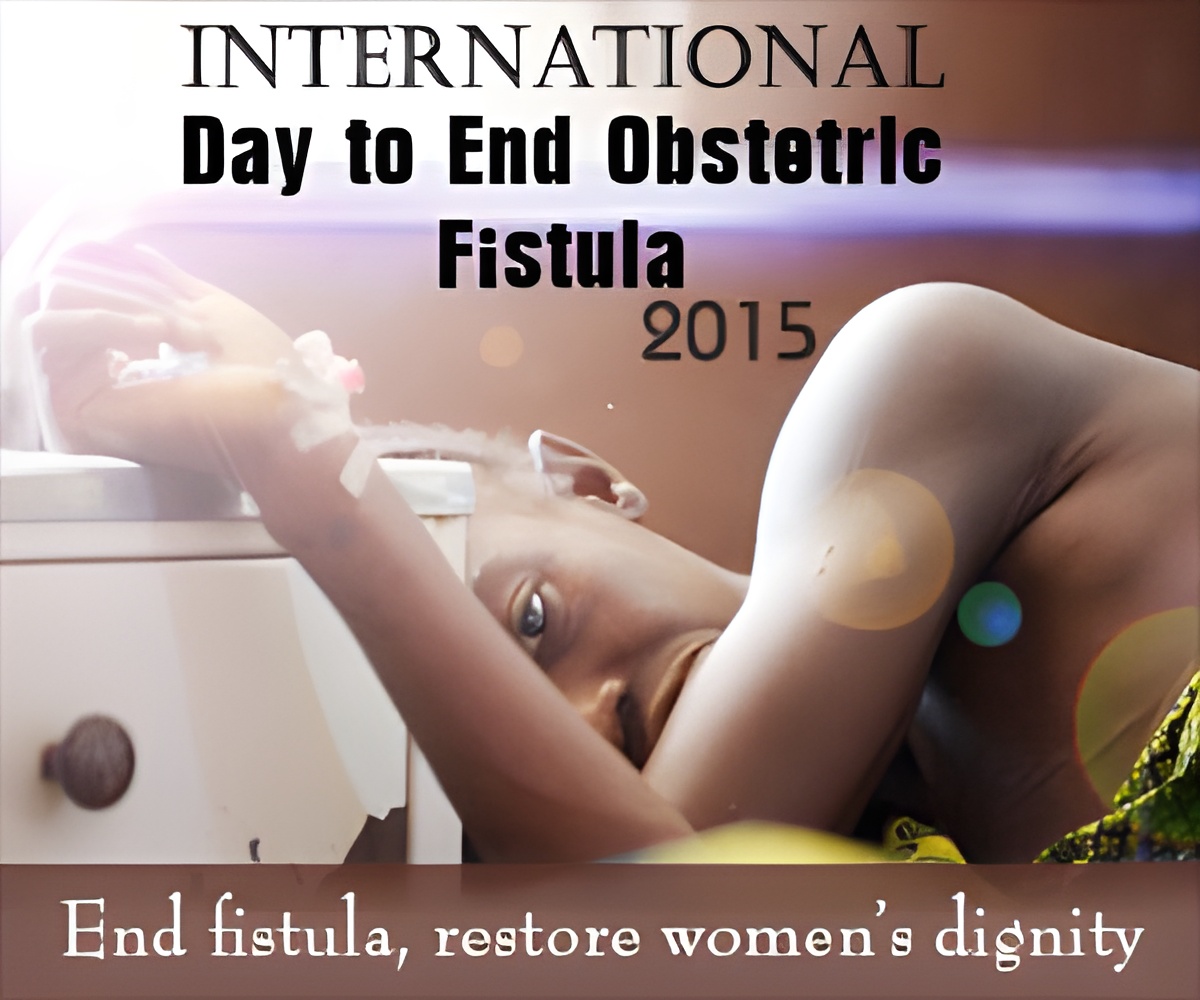Obstetric fistula is an injury that can leave women physically and socially scarred, leading to incontinence and also, a stillborn baby.

It is estimated that almost 2 million women in sub-Saharan Africa, Asia, parts of Arabia, Latin America and parts of the Caribbean are living with this condition. Every year almost 50,000-100,000 new cases develop.
Obstetric Fistula is totally preventable and also curable. The fact that a number of women are living with this condition indicates the failure of the health system to meet the basic needs of women.
The Campaign to End Fistula was launched by UNFPA (United Nations Population Fund) and its partners in 2003 and is present in 50 countries across Africa, Asia and parts of Arabia. In December, 2012, the Third Committee of the UN General Assembly designated May 23 as the “International Day to End Obstetric Fistula” to be observed annually beginning from 2013.
This day was designated towards advocacy and awareness of this preventable and treatable condition, to take actions towards ending obstetric fistula and improving the health-related quality of lives of women. The day was launched in the Democratic Republic of Congo in Africa with the UN Secretary-General, the UNFPA Executive Director and the President of the World Bank, who visited patients who had either received or awaiting corrective surgery at the HEAL Africa hospital.
Campaign to End Fistula
The UNFPA-led Campaign to End Fistula also feeds into the Millennium Development Goal 5: Improving Maternal Health.It Comprises Three Key Strategies:
- Preventing fistula
- Treating affected women and girls
- Post-surgical support for women and girls
According to Dr. Babatunde Ostomehin, Executive Director, UNFPA, obstetric fistula is a reflection of issues of health inequities and access, gender-based issues like child marriage and early child-bearing and chronic human rights violation.
From 2013 to now, the campaign has made a significant impact on the lives of women and girls suffering from this condition. UNFPA has directly supported nearly 35,000 women and girls by providing access to treatment and surgeries. The campaign identified midwives as key partners who serve as the first point of contact for women and girls. It works with midwives who play an important role in prevention, screening, awareness and timely referral to treatment for women and girls. The larger goal is to reintegrate suffering women and girls into their families and communities as productive members.
International Day to End Obstetric Fistula 2015 Theme
The theme for 2015 is “End fistula, restore women’s dignity” which implies the social consequences of living with fistula.This year’s theme is significant as it raises concerns regarding markers of inequalities of health access and human rights violations. The theme is also significant as the Millennium Development Goals come to a close; it is an opportunity to put the health of women, girls, maternal and newborn issues at the heart of human development.
The 2015 theme rightly highlights the issue of women’s dignity which is severely compromised in women and girls suffering from fistula. Apart from the indignity of the condition itself, women and girls are socially ostracised by families and communities.
Most of these impoverished women and girls are abandoned by their husbands and forced to return to their natal families where they are again treated badly on account of the condition. With no access to a decent livelihood, women are forced to be dependent on their families. The theme’s call-to-action to end fistula and enhance women’s dignity rightly links the cause-effect of fistula and its social suffering.
The UN Secretary-General Ban Ki-moon has an important message for this year and the theme. The message is intended for everyone suffering from this condition and those aiding and supporting sufferers. It is a call-to-action to world leaders to end this preventable and treatable condition.
Reflecting on the issue, the Secretary-General noted that every fistula-affected nation needs to develop an inclusive agenda and action plan that focuses on gender equality as a key development issue. The existence of fistula among the most impoverished nations reflects health care as an outcome of other socioeconomic and gender inequalities. Women and girls in the most marginalized communities are chronically denied quality sexual and reproductive health facilities and we need to end this unnecessary suffering if the globe has to make inclusive progress.
Reflecting back on the December 2014, the UN General Assembly resolution on ending fistula, the Secretary-General stressed on the need to move towards a just, equitable and sustainable development agenda that addresses issues of gender and health inequalities to ensure progress and development for all communities.








